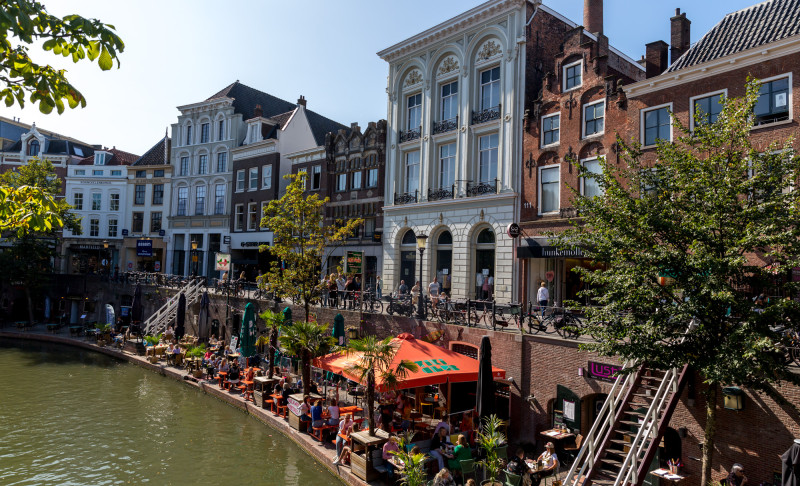
European Studies - Track
This special six-week track offers you the opportunity to explore the history and culture of Europe.

This special six-week track offers you the opportunity to explore the history and culture of Europe.
Studying in the beautiful medieval city of Utrecht, you will not only look into the various European cultures and identities, but also study the key issues related to ‘the rise of modern Europe’ from the Middle Ages to the end of the 19th century. You will examine the three major wars that shaped the 20th century in Europe: WW I and II, and the Cold War.
The topics that will be studied during the first two weeks in Utrecht will help you understand the complicated structure of Europe and will shed a light on the motives for integration as well as the obstacles on the way to European unity. Lectures will focus on the history, social and economic structures, culture, and current political and social debates within the wider European community.
The next two weeks are more of an ‘experience’. This historical journey, which illuminates Europe from the Middle Ages to the end of the 19th century from the perspective of the city of Utrecht, will enable you to understand the many social, historical, religious and cultural factors that came to shape modern Europe. The many museums, cathedrals and canals of Utrecht and visits to, for example, Amsterdam, are included in the programme and will offer the participants some of the most breathtaking highlights of Dutch history and culture. Topics include for example the Dutch Golden Age, the era spanning roughly the 17th century in which the Dutch became one of the world’s greatest maritime, economic and artistic world powers.
Excursions will lead you through Utrecht and Amsterdam, visiting several historical museums in Utrecht and Amsterdam. In the final two weeks, the focus shifts to the 20th century. During this century, Europe did not just experience one, but three horrific wars: the First and Second World War and the Cold War that followed in their wake. However, this century can also be regarded as an age of rebuilding, transatlantic collaboration, and global connections, thus making the 20th century much more diverse. Students engage with lectures covering a wide range of historical themes, including not only the histories of the three wars but also subjects like international cooperation, the rise of multilateralism and institutions such as the United Nations, the evolving relationship between the United States and Europe, the collapse of communism, and the processes of decolonisation. Throughout this track, you will be taken on a number of excursions, which will be listed in the day-to-day programme (expected in February).
The course is open to all students from different fields of study with an interest in culture, society, European studies and politics.
The aim of this course is to introduce students to the social and cultural aspects of the nations within the European community. At the end of the course students should be able to:
The housing costs do not include a Utrecht Summer School sleeping bag. This is a separate product on the invoice. If you wish to bring your own bedding, please deselect or remove the sleeping bag from your order.